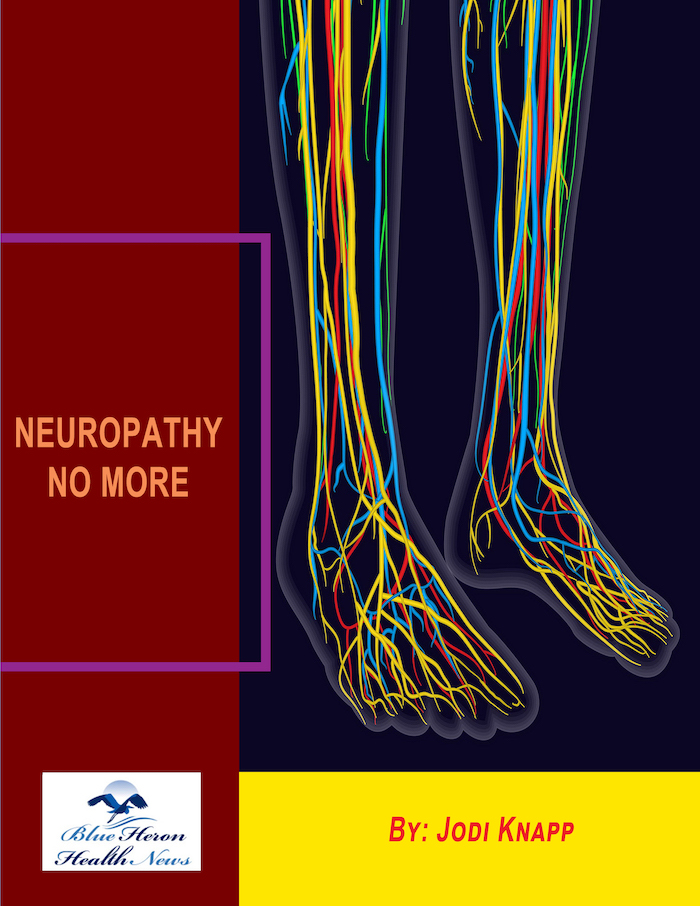
Neuropathy No More neuropathy No More By JODI KNAPP neuropathy is one of the most painful diseases which can make people suffer a lot. Even though medical science has progressed a lot, it could not really found a solution for this condition. This is because the condition is deep routed. You have to make sure that you are changing some of the lifestyle patterns to get relief from the symptoms. The Neuropathy No More is exactly what you need for that. This program is quite helpful and can provide you with all the important information that you will need to ensure better life without the symptoms.
What is the role of omega-3 fatty acids in neuropathy management?
Omega-3 fatty acids are also a major player in managing neuropathy, offering some potential benefits due to their anti-inflammatory and nerve-supporting properties. Here are how they can prove helpful:
1. Inhibiting Inflammation
Neuropathy, particularly in conditions like diabetic neuropathy, or inflammatory nerve disease, is typically accompanied by swelling. Omega-3 fatty acids, particularly EPA and DHA, are highly anti-inflammatory. Through the alleviation of inflammation, omega-3s can help reduce pain, discomfort, and damage to the nerve.
2. Facilitating Nerve Repair
Omega-3s are critical structural components of cell membranes, and they contribute to the structure and function of nerve cells (neurons). Omega-3 fatty acids aid in the repair of injured nerves and can enhance nerve regeneration, supporting the functioning of injured nerves as a whole.
3. Improving Blood Flow
Omega-3 fatty acids promote better blood flow by reducing bad cholesterol (LDL) and triglyceride levels, both of which can cause poor circulation. Better circulation can help in the better delivery of oxygen and nutrients to the nerves, which can be helpful in maintaining good nerve health.
4. Pain Management
Studies have shown that omega-3s are beneficial in managing neuropathic pain. The anti-inflammatory effect reduces pain, and omega-3s have even been proven to alter pain signaling pathways, which leads to decreased perception of pain in individuals with neuropathy.
5. Boosting Nerve Communication
Omega-3 fatty acids are essential to the myelin sheath (nerveness protective coating). Healthy myelin improves nerve signaling, leading to better brain-body communication, which can alleviate some neuropathy symptoms, such as numbness and tingling.
6. Supporting Overall Nerve Health
By its alleviation of oxidative stress (a cause of nerve damage), omega-3s prevent further damage to nerves, supporting long-term nerve health in neuropathy patients.
How to Include Omega-3s:
Fish Oil Supplements: You can use supplements like fish oil if you are not getting adequate omega-3s from foods. Take approximately 1–2 grams daily, but consult a healthcare professional for the proper dosage.
Fatty Fish: Salmon, mackerel, sardines, and anchovies are great sources of omega-3s.
Plant Sources: Chia seeds, flaxseeds, hemp seeds, and walnuts are good options for someone interested in consuming plant-based omega-3s (ALA, which the body must convert to EPA/DHA, though less efficiently).
Would you find more detailed suggestions regarding how to incorporate these into a daily regimen or recommendations for a specific type of neuropathy?
Magnesium supplementation can control neuropathy, especially diabetic neuropathy, by promoting several important mechanisms in nerve health and function:
1. Improves Nerve Function
Magnesium plays an essential role in nerve conduction and neurotransmitter regulation.
Magnesium maintains the nerve cell membrane stable to keep there minimal chance for dysfunction or nerve injury.
2. Prevents Inflammation
Magnesium also comes with an anti-inflammatory component which is also likely to prevent swelling that individuals who have neuropathy which primarily causes damage and pain on nerves.
3. Prevents Blood Sugar Rise
Magnesium enhances the sensitivity of insulin, which can help with better blood glucose control in diabetics. Better control of blood sugar is required to stop nerve damage from progressing in neuropathy.
4. Avoids Excitotoxicity
Magnesium controls calcium in nerve cells. Too much calcium present (a condition referred to as excitotoxicity) can cause nerve damage. Magnesium provides proper calcium balance and avoids excessive damage to nerve cells.
5. Facilitates Circulation
Magnesium plays a role in increased blood flow by helping to relax blood vessels, which may enhance the delivery of oxygen and nutrients to nerves. Increased circulation can help support nerve repair and function.
6. Eases Pain
Magnesium is a muscle relaxant that can be used to alleviate cramps and spasms, which are common in neuropathy. It can relieve the sensation of “pins and needles” or burning with nerve damage.
7. Aids Nerve Regeneration
Other studies suggest magnesium could be beneficial for activating the healing of nerve fibers, particularly for peripheral neuropathy, so the recovery and healing process can improve.
Magnesium supplement may be beneficial to most people with neuropathy, but always consult a health professional for proper dosage, particularly in patients with kidney disease or taking medications that may interfere with magnesium. Do you require more detailed information about magnesium-fortified food or supplements?
Neuropathy No More neuropathy No More By JODI KNAPP neuropathy is one of the most painful diseases which can make people suffer a lot. Even though medical science has progressed a lot, it could not really found a solution for this condition. This is because the condition is deep routed. You have to make sure that you are changing some of the lifestyle patterns to get relief from the symptoms. The Neuropathy No More is exactly what you need for that. This program is quite helpful and can provide you with all the important information that you will need to ensure better life without the symptoms.